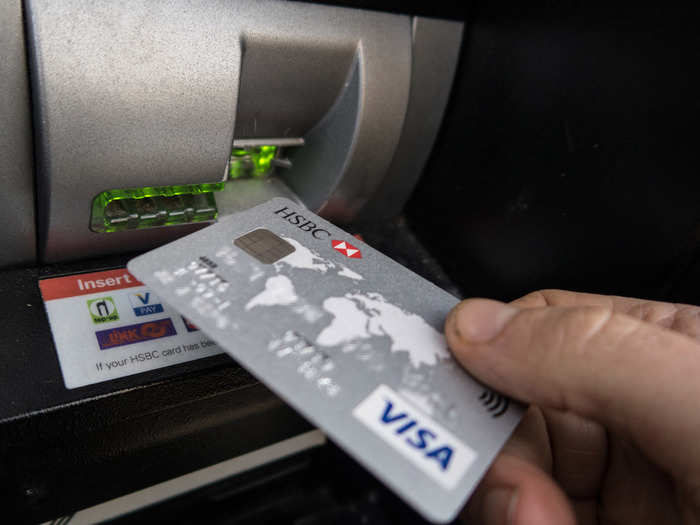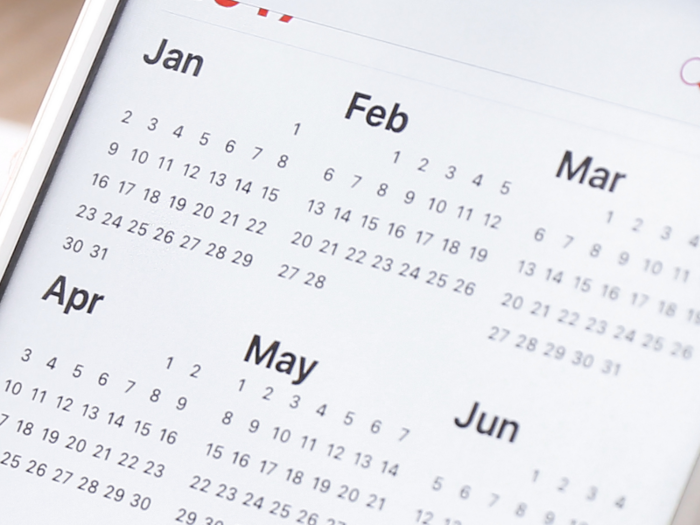- Home
- slideshows
- miscellaneous
- A financial planner shares an 8-step plan to paying off your credit-card debt
A financial planner shares an 8-step plan to paying off your credit-card debt
1. Change your spending patterns

2. Figure out what you owe

Sure, you may have an idea of how much debt have, but until you add it all up — down to the last cent — do you actually know?
"Create a list of everything you owe: credit-card debt, other monthly bills, outstanding balances, APRs [annual percentage rate, or the amount charged yearly for borrowing money], minimum payments, and fees," Norris said. "This exercise helps you not only prioritize a future payoff strategy, but also to grasp the egregious costs of carrying this debt."
3. Roll your balances into a new form, such as a lower APR card

Chances are, some of your APRs may be quite high, even if they started off low or at 0%. At the time of publication, the average APR for a credit card was 17.02%, according to CreditCards.com.
Look into ways to reduce the overall amount you owe, such as by lowering your APRs, particularly if you're trying to pay down several cards.
"While it might seem counterintuitive to apply for a new loan when you're working to get out of debt, rolling balances into a new form — ideally with fixed monthly payments, lower interest rates, or a defined shorter payoff term — could reduce the carrying cost of the debt," Norris said. "Personal loans, 0% balance transfer cards, and home equity loans are options to transfer debt out of credit cards with high interest rates."
She also said you can reach out to your creditors to negotiate a lower APR, citing your track record of making payments on time as a reason to cut you some slack.
4. Tap into your assets

You may have assets that could help you pay down your credit card debt — and you may not even realize it.
"Cash sitting on the sidelines or in a taxable investment account may be put to better use paying off debt, especially if the interest rate on the debt is higher than the investment return you could expect to achieve," Norris said. "Consider paying off part of the debt with a lump-sum transfer from your existing assets."
5. Choose your debt paydown strategy

Different people have different preferred methods of paying off debt, and Norris said it's important to understand how each one works, then choose accordingly.
She identified two tried-and-true methods for paying off debt.
"The debt avalanche starts with the highest interest rate [card] and works its way down, which saves you both time and money, while the debt snowball focuses on the credit card with the lowest balance, using your sense of accomplishment as motivation," she said. "We often advise SoFi members to leverage a hybrid approach between the avalanche and snowball methods."
6. Focus on one card at a time

Of course, a significant part of credit-card debt isn't necessarily the fees from purchases you made, but the additional fees and interest that have been added on.
To avoid this, Norris said to make a habit of immediately taking money from your paycheck and sending it to your creditors. This way, you'll make all minimum payments and avoid surcharges and penalties.
"Then, channel anything else you can feasibly save to whatever credit card matches your debt paydown strategy from Step Five," she said.
7. Break down big paying-off-debt goals into smaller ones

No matter what type of objective you have, it's best to break it up into small goals.
"Enter your debt paydown goal in your calendar and commit to making extra payments each week, adopting subgoals that break the overall task of becoming debt-free into smaller, more manageable chunks," Norris said. Setting frequent deadlines help our intentions become part of the immediate reality, she said.
To help track your weekly milestones, Norris said to look into using a debt payoff calculator, whether you find one online or create your own in Excel.
8. Promise yourself to never carry a credit card balance again

Once you pay off your credit cards, it may be tempting to start using them again. Before you do, make sure you have new money rules in place for yourself.
"Unexpected expenses will arise in the future, and a wise way to buffer against paying credit card interest is to rebuild your emergency fund and only put select expenses on credit," Norris said. "If you can't afford to buy something without resorting to a credit card — if you don’t have enough cash on hand — you simply cannot afford it. Break the cycle."
Popular Right Now
Popular Keywords
Advertisement